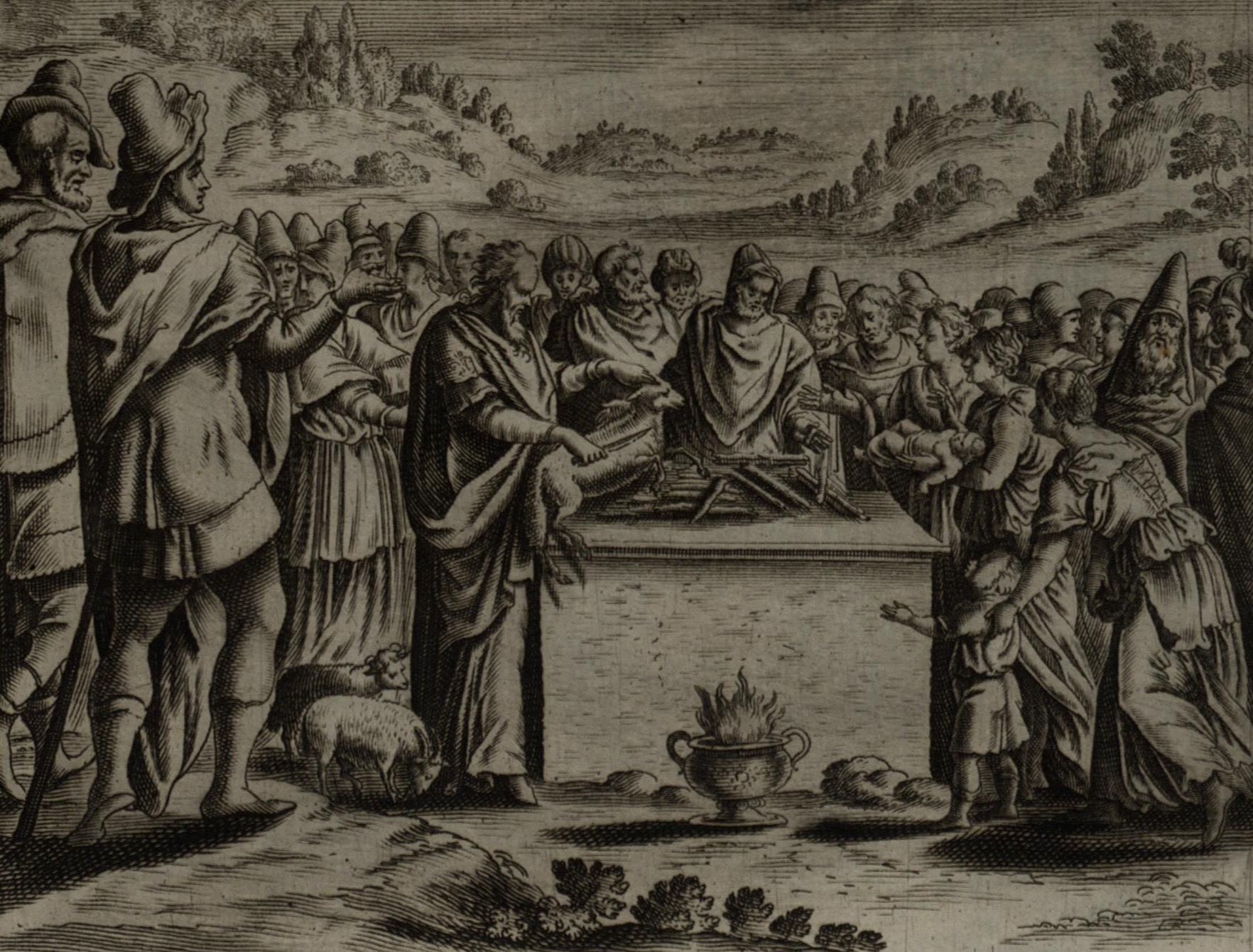“Dayeinu” is one of the more perplexing passages in the Passover Haggadah. It comes as a respite after a long stretch of Talmudic exegesis, and is therefore typically chanted in an exuberant manner. This fosters its interpretation as a song of rejoicing. Most say that Dayeinu serves as an accounting of the great enactments of G-d, starting with the exodus from Egypt and ending with the building of the Temple. When we say ‘dayeinu’ we are proclaiming that each of these events is sufficient for praise in its own right.
I don’t know about you, but this interpretation is not sufficient for me. What most stood out to me was the final stanza: “And built for us the Temple to atone for all of our sins.” What is meant by the claim that G-d built the Temple; was it not the work of man? Why does the joyous chapter conclude with mention of our sins? Why is it only the building of the Temple that is given a reason? And why is this reason given when it seems contra to the rabbinic tradition?
After reflecting on the text, I have come to the conclusion that Dayeinu is the most dire text in all our liturgy. We should recite it odiously, clapping our chests with our fists after each ‘dayeinu’ as we do on the Day of Atonement. The tale is not one of great fortune but rather of missed opportunities, of missed second opportunities, of missed second second opportunities, and so on.
The concept of second chances is intimately linked with the second Passover that we celebrated last month. When the Temple stood, the Jews would bring the Paschal lamb as a sacrifice of commemoration. There are certain situations that prevent one from being able to bring a sacrifice, such as being on a journey or being ritually impure. In Chapter 9 of the book of Numbers, a group complains to Moses about this, because they feel that the inability to bring the sacrifice has segregated them from the rest of the Congregation of Israel. A second Passover is thus instituted, 30 days after the first one.
This second Passover is restricted to those who had a valid reason for missing the first one. If the person did not have a valid reason, then it is not circumstance which had separated him from the community, but rather his own arrogance. It is easy to regret a certain decision after the fact, especially when the repercussions are obvious. If one does not change the elements of one’s character, then if put in the same situation one is likely to repeat the same error. For this reason, he is not allowed to join in the celebration a month later, but must bear his sin of being cut off from the Jewish people for an entire year, until the next Passover.
When applying this paradigm to an entire community, one begins to understand the critical nature of Dayeinu. At each stage it is easy to look at the past and see the hand of G-d at play. But what is gained from this viewpoint?
Some become convinced that G-d is ‘on their side,’ which leads to a combination of complacency and fundamentalism. If G-d is always a moment away from intervening and preventing disaster, then there is no need to attempt to fix the present situation on one’s own. If a time passes and the situation does not improve, then it is easy to believe that the reason is that you have lost favor in the eyes of God and must turn to zealotry. These attitudes do not take into account the present reality but are trapped viewing the present through the lens of an idealized past.
Instead, one must view the past as the bedrock for the present. Seeing G-d as having intervened in your past means seeing a present which has a purpose. In Dayeinu, there is no direct mention of G-d, but rather a reference to ‘The place on us.’ It is dangerous to try to pigeonhole G-d into your own definition. Instead, there is the place, and you may view it through different lenses. If you are fully convinced of there existing a reason for you being in the present moment, then there is no room for idleness. You have been placed here for a reason and must strive to fulfill it!
Dayeinu means something along the lines of ‘It would have been enough for us.’ The text breaks up the story at points where it would have been enough for us to take things into our own hands. Instead, we complained time and time again. Dayeinu is also related to the Hebrew root din, which means judgment. At each stage in the story, having been dependent on G-d would have been enough to sentence us.
The final clause ‘to atone for all our sins’ is not connected to the building of the temple, but rather the beginning of that paragraph. After recognizing our failure to take things into our own hands we declare: “How much more so have we been shown favor- doubled and redoubled, to/from the place on us…[repeat the list of all the favors]…to atone for all our sins.” It is the sin of separating ourselves off from one another, of creating arbitrary divisions, of living in the past or the future exclusively. This is the sin for which we are held accountable, and have missed our opportunity for being redeemed at the present moment. Rather we must wait an entire year, for the next Passover will be held in Jerusalem, so long as we work for it!

